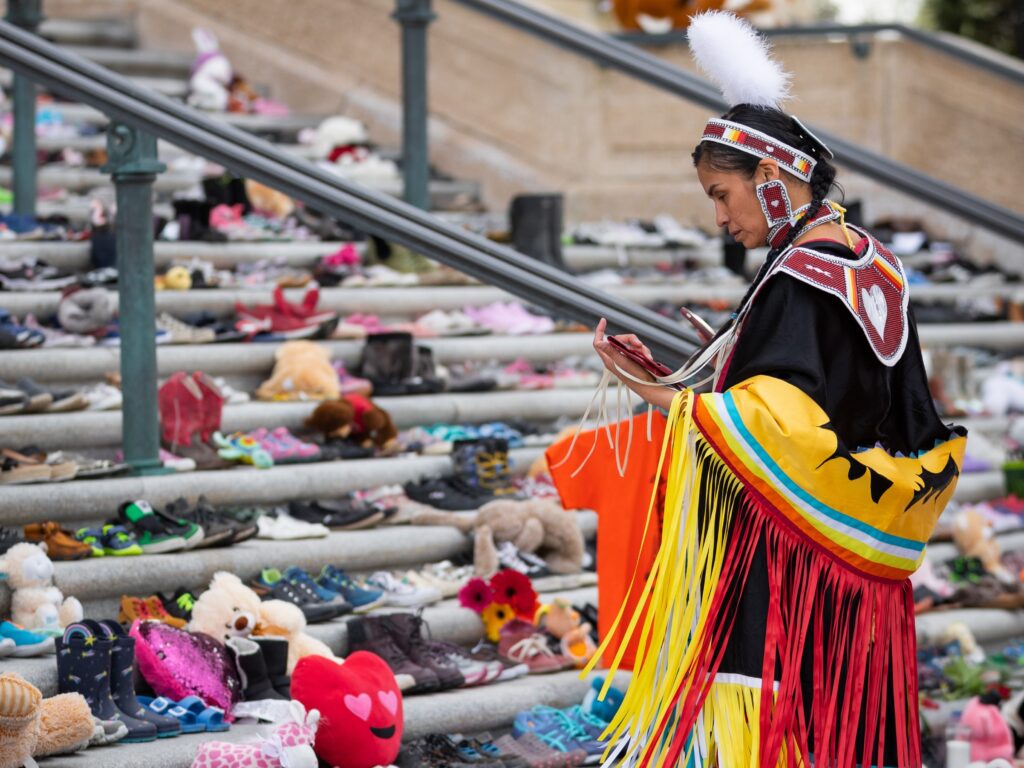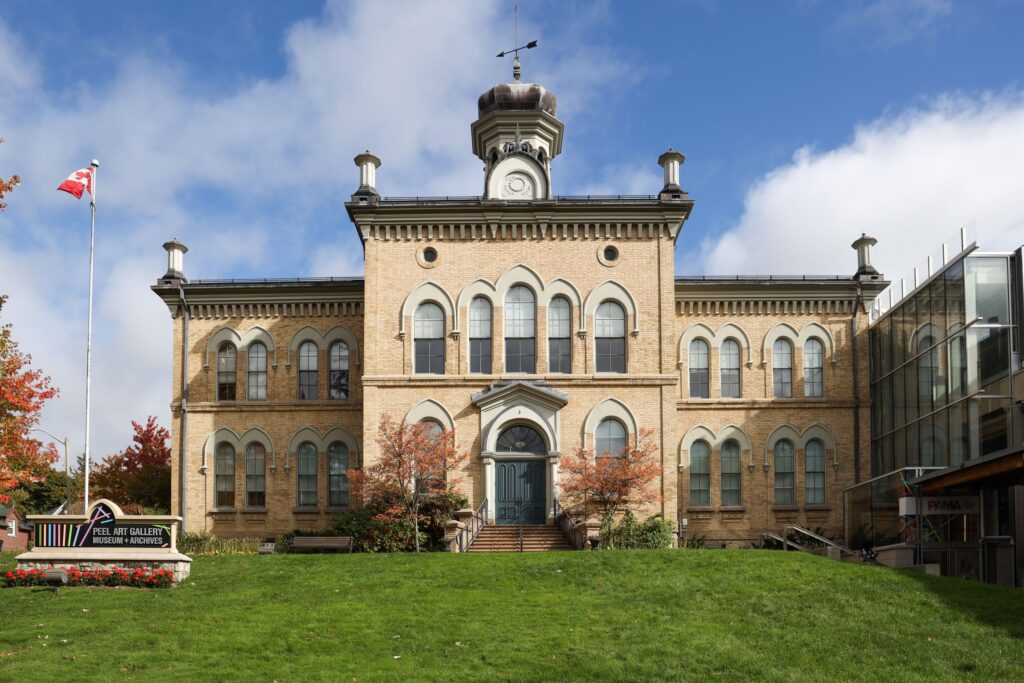Every year, on September 30th, Canada comes together to observe Orange Shirt Day in memory of all Indigenous children who suffered as a result of the Residential School System in Canada. This annual event is not just for remembering a painful history, but also a celebration of the strength within Indigenous communities. Here, you’ll learn about the history and significance that makes Orange Shirt Day an important time for reflection and reconciliation.
The Origins
Orange Shirt Day goes back to Phyllis Webstad, who is Northern Secwpemc (Shuswap) from the Stswecem’c Xgat’tem First Nation and a residential school survivor. In 1973, Phyllis arrived at the St. Joseph Mission Indian Residential School in British Columbia at the age of 6. On her first day, she wore a brand-new orange shirt, which was a cherished gift from her grandmother. However, this cherished gift was forcibly taken from her upon her arrival at the school.
Phyllis’s experience represents the profound trauma inflicted on Indigenous children within the residential school system. The residential schools in Canada aimed to assimilate Indigenous children into European-Canadian culture across Canada for over a century, often with great brutality. The long-lasting impact of these schools continues to affect Indigenous communities today.
A Day of Remembrance
The orange shirt stands as a powerful symbol, reminding us of every child’s experiences. By participating, you make space for remembrance in order to ensure history does not repeat itself. During the time of residential schools, Indigenous children were taken from their families and forcibly sent to residential schools where many children died. Orange Shirt Day now serves as a solemn reminder of the hardships these children endured. Beyond remembrance, Orange Shirt Day is also a call to action.
Orange Shirt Day: The Road to Reconciliation
Education and Awareness
One of the key objectives of Orange Shirt Day is to educate Canadians about the history and legacy of residential schools. Schools and communities across the country organize events with activities like storytelling, guest speakers, and cultural performances to promote awareness and foster understanding.
Reconciliation
As a result, Orange Shirt Day is not solely about reflecting on the past; it’s about taking steps forward. It is a call to action for reconciliation between Indigenous and non-Indigenous peoples. This encourages open dialogue about the legacy of residential schools and the ongoing challenges faced by Indigenous communities, including intergenerational trauma, systemic discrimination, and the need for reconciliation. On this day, communities unite to demonstrate their support and dedication to healing the wounds of the past.
Hope and Healing
Orange Shirt Day also provides a platform for sharing to create bonds and heal together as a community. Indigenous elders and survivors often recount their experiences, offering firsthand accounts of what they faced and the strength that allowed them to build lives after experiencing horrible trauma at such young ages.

Phyllis Webstad is one of many who hold powerful stories of their experiences. She transformed her painful childhood experience into a symbol for survivors, sharing her story with audiences across Canada. When sharing, Phyllis emphasizes the importance of understanding and acknowledging the past in order to build a brighter future.
Orange Shirt Day in Canada is a meaningful day of reflection, remembrance, and reconciliation. Through education and awareness, we hope you take the time to learn more from your community. This will help all Canadians create a more inclusive and equitable future.
To learn more about Orange Shirt Day, click here.
For more information on how you can participate in the path towards reconciliation, click here.





